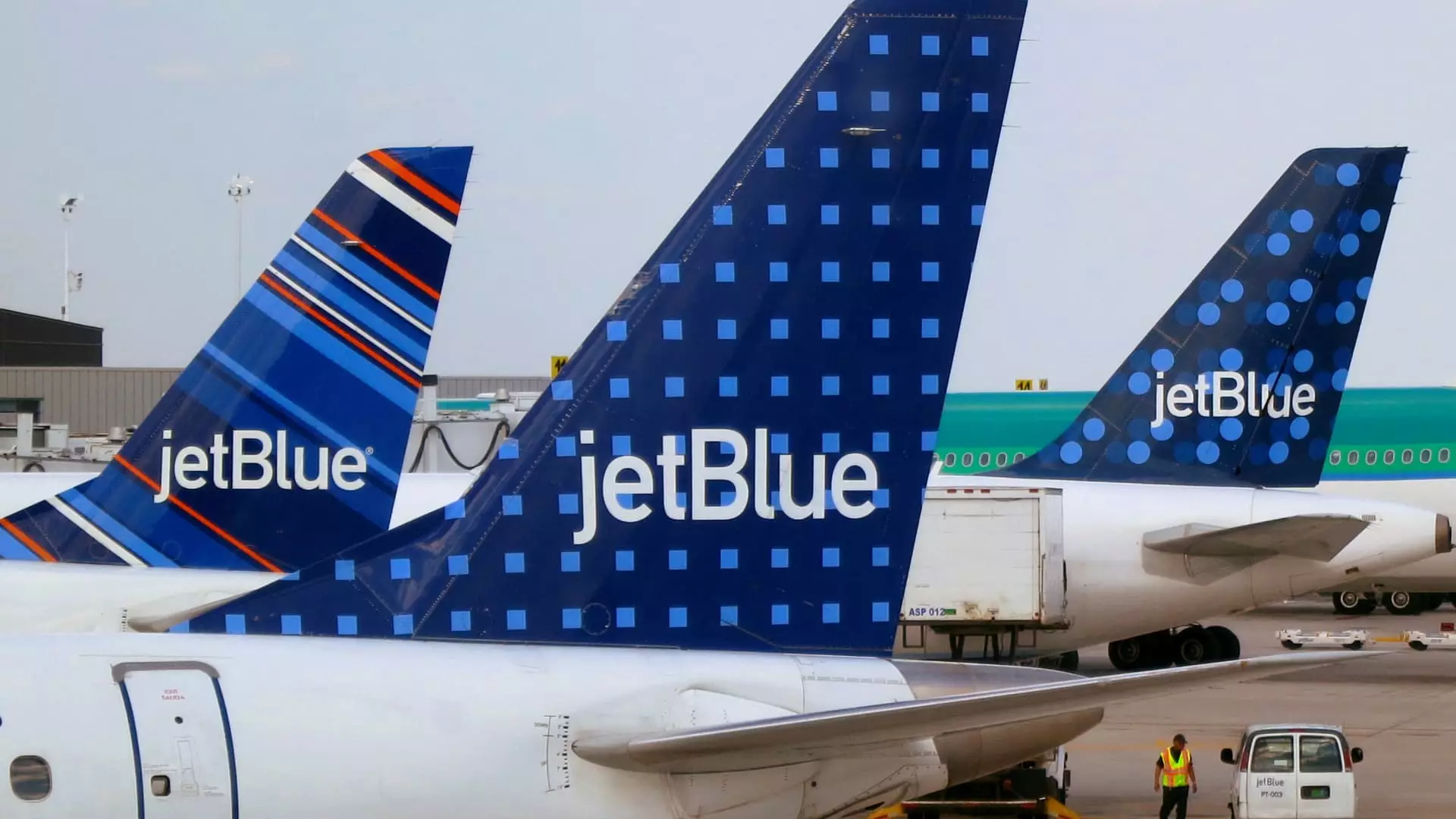In a landmark move, the Department of Transportation (DOT) imposed a hefty $2 million fine on JetBlue Airways, marking a significant shift in how chronically delayed flights are managed and penalized in the airline industry. This unprecedented penalty underscores the increasing scrutiny airlines face regarding their operational transparency and accountability. The fine specifically targets JetBlue’s continued struggle with chronically delayed flights, a situation that has garnered attention from both the industry and the traveling public.
According to the DOT, JetBlue operated several routes that experienced alarming delays, accumulating over 145 tardy flights between June 2022 and November 2023. The affected routes included key connections such as the one between JetBlue’s main hub at New York’s John F. Kennedy International Airport (JFK) and North Carolina’s Raleigh-Durham International Airport, along with other critical flights in Florida and Connecticut. The substantial number of delays marked JetBlue as the primary source of disruption on these routes, with the airline reportedly responsible for over 70% of the delays.
This raises concerns about JetBlue’s operational management and strategic planning. The DOT’s definition of “chronically delayed” involves a flight being late more than half the time over a duration of at least ten flights monthly. The implication of this designation not only reflects poorly on JetBlue’s scheduling practices but also signals deeper issues within its operational infrastructure that need addressing.
Transportation Secretary Pete Buttigieg emphasized the urgency of the situation, stating that the DOT’s actions serve as a warning to the entire airline industry. The focus here is on ensuring that flight schedules accurately represent the realities of air travel, thereby improving the overall reliability of airlines. The department is also investigating other airlines with similarly questionable practices, aiming to cultivate a standard of punctuality that aligns with consumer expectations.
Buttigieg’s comments imply a broader governmental mandate emphasizing the importance of adherence to realistic scheduling. This initiative could potentially lead to more stringent regulations and oversight, with the goal of enhancing overall consumer trust in the aviation system.
In light of its recent penalty, JetBlue Airways has publicly defended its operations, claiming that systemic issues extend beyond individual airline performance. In their statement, the airline called for more comprehensive reforms within the air traffic control (ATC) system, advocating for the modernization of outdated technology and addressing chronic staffing shortages that plague ATC. JetBlue’s assertions align with sentiments expressed by other major carriers, indicating a unified call for systemic improvements across the industry.
The airline maintained that while they acknowledge the fine and have settled this matter, the responsibility for ensuring reliable air travel cannot rest solely on their shoulders. Their perspective highlights an important dialogue about the interconnectivity of airline operations and government infrastructure, suggesting that resolving these ongoing challenges requires a collaborative effort.
JetBlue’s recent penalty serves as a crucial case study in airline accountability and operational transparency. As consumer expectations evolve, and air travel continues to recover from the pandemic’s profound disruptions, the nature of how airlines handle delays and cancellations will come under sharper scrutiny.
The DOT’s actions may herald a new era where systemic industry-wide reforms become necessary for maintaining passenger confidence. Airlines, including JetBlue, will likely need to employ proactive strategies such as better scheduling practices, technology upgrades, and possibly even more staffing initiatives to prevent similar backlash in the future.
Furthermore, the acknowledgment of compensatory measures taken for affected passengers indicates a shift toward greater accountability within the industry. With a portion of the fine credited back to JetBlue for passenger compensations previously distributed, a precedent has been set for airlines to prioritize consumer satisfaction whilst adhering to operational standards.
The fine levied against JetBlue Airways for chronically delayed flights is a clarion call for change within the aviation sector. As the industry contemplates future operational frameworks, it is imperative to address not only the immediate violations but also the broader systemic challenges that contribute to service disruptions. The evolving dynamics of air travel demand a serious commitment from both airlines and regulatory bodies to ensure that air travel remains a reliable and efficient mode of transportation for millions of passengers annually.

